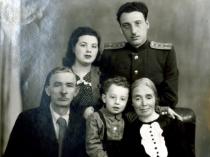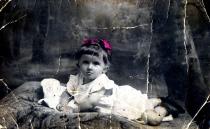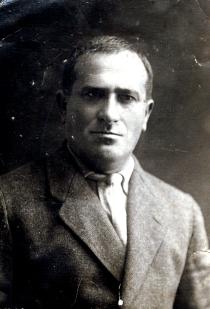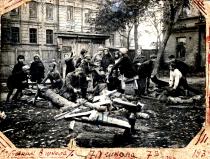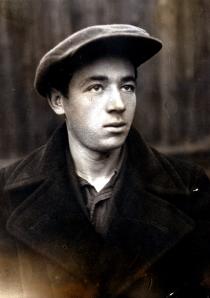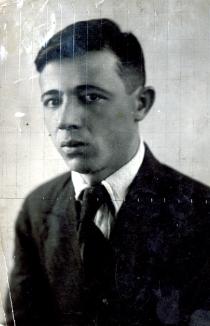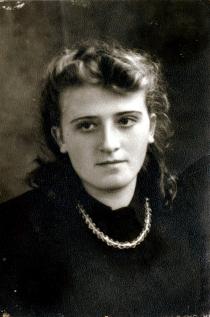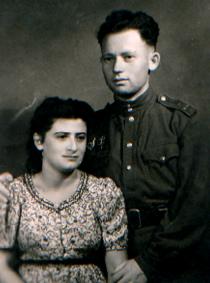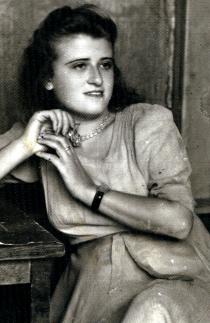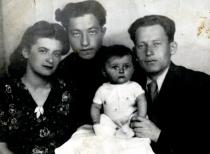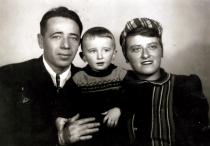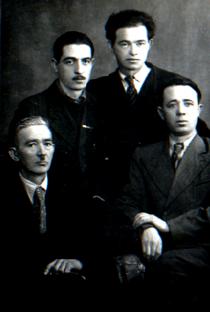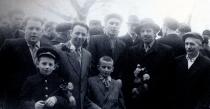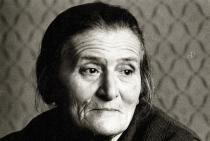This is me when I was 20 years old and back in Kiev.
In fall of 1943, after Kiev was liberated, we came back home. It was not so simple, we had to have a special invitation to restore the city. I remember Kreschatik being leveled - there was only a narrow board on which two men could hardly walk together; the rest was broken glass and bricks. Our two-room pre-war flat in Tverskaya Street was occupied by somebody without permission. The former owner of that house, a Ukrainian - Petro - let us stay in his flat. Six months later my mother managed to get our housing back through the court, which was a unique case at the time.
With my marriage, my life began to fill with Jewish traditions and the Jewish religion again. Thanks to my mother-in-law, keeping the main rituals and attending the synagogue became a normal thing for us.
My childhood and adolescence during the war were spent in the Jewish environment, but it was still very assimilated. My mentality was Soviet, rather than Jewish, with its two main characteristics: first - atheism, second - internationalism. There was simply no place for Jewish traditions or faith there. We all believed in Communism and feared nothing.
The war and the Holocaust radically changed all that. There came a feeling of irreplaceable loss and I was drawn to my roots, to God; I began to fear to break His commandments. Everything my mother-in-law would say or do became understandable and necessary for me.

